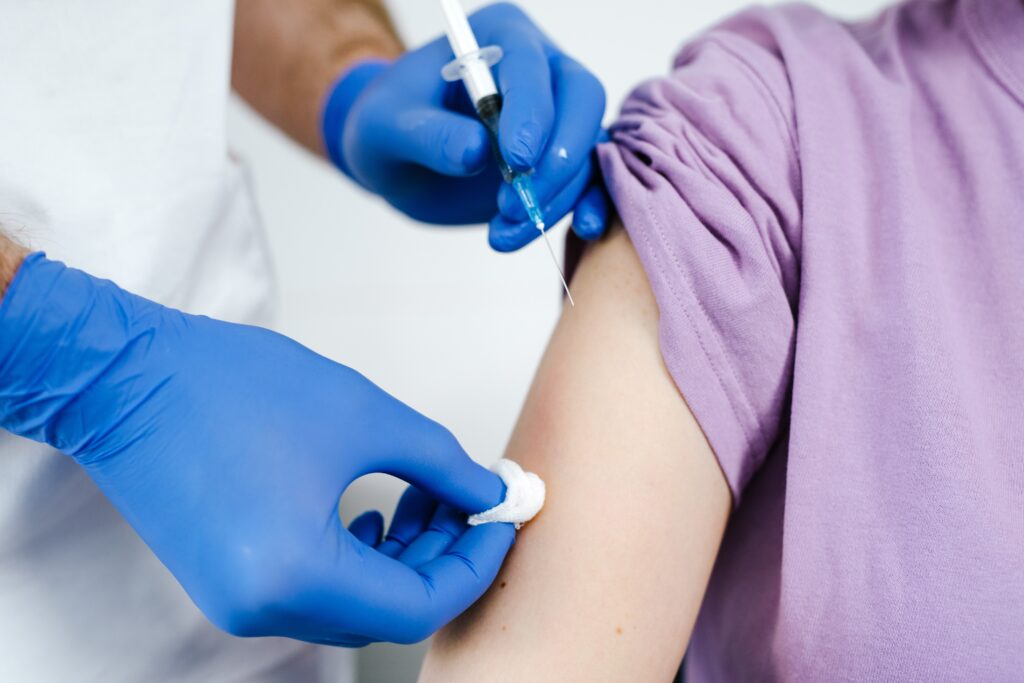Understanding the Dangers of Whooping Cough in Pregnancy

Whooping cough (Pertussis) is a highly contagious infection that leads to uncontrollable coughing. Whooping cough has been referred to as the 100-day cough due to the severity of coughing fits and the length of time one is ill. Other cold symptoms, such as fever and runny nose, can be present.
When having a baby, you want to do everything in your power to protect it and give it the best chance in life. But illnesses like Whooping cough can stand in the way of that. The incidence of whooping cough has risen in the last twenty years. When whooping cough is severe, it can cause death, especially in infants younger than 1 year. According to the Centers for Disease Control and Prevention, an average of 20 babies die from whooping cough each year. While there is no vaccine for newborns, fortunately, mothers can confer immunity to the baby if she recieves the vaccine for Whooping cough while pregnant.
Why is Getting Whooping Cough During Pregnancy Dangerous?
Doctors recommend the Whooping cough (Tdap) vaccine for pregnant women during the third trimester of every pregnancy up until labor starts. The Tdap vaccine also protects against diphtheria, tetanus, and polio. The vaccine provides added protection for pregnant women and babies from whooping cough. The vaccine is safe for pregnant women, and there is no evidence that the vaccine will put the baby at risk.
Contracting Whooping cough can be dangerous for babies. While coughing fits, gasping for air, lung infections, and hospitalization are common symptoms for older children and adults, babies rarely cough. Instead, they may stop breathing and turn blue or purple. The protection you get from the Whooping cough (Tdap) vaccine passes on to the baby during pregnancy, which protects the baby’s health and passes the antibodies from the mother to the child.
Pregnant? Talk to Your Doctor About the Vaccine for Whooping Cough

Talk to your medical provider about getting the vaccination during your routine prenatal appointment, if they haven’t brought it up already. Your doctor is the best person to discuss any concerns you may have about the dangers of whooping cough in pregnancy and how the vaccine works to protect mother and child. It is vital to get a vaccine for Whooping cough every time you are pregnant. Also, other family members should consider getting the vaccination as well to reduce any risk of getting infected with Whooping cough, diphtheria, tetanus, or polio.
How to Protect Yourself Against Whooping Cough During Pregnancy
Did you know that the first vaccine to protect people against Whooping cough appeared in 1914? That’s over 100 years of helping prevent against the dangers of whooping cough in pregnancy. The current version of the vaccine was developed in 1991, which includes protection against diphtheria, tetanus, and polio – three severe infections that can harm both mother and baby.
Doctors and midwives agree that getting the vaccine for Whooping cough while pregnant is essential during the third trimester of pregnancy. Getting the vaccine at this time does not increase any risk for pregnancy complications. These medical recommendations come from analyzing many years of safety data. Speak with your doctor during your regularly scheduled appointments about any questions or concerns you may have.
Are There Any Side Effects from Getting the Vaccine for Whooping Cough While Pregnant?
The current Whooping cough vaccine has been in use for over 30 years and the reported side effects, when they occur, are very mild. The most frequent side effects include
- Redness or soreness at the injection site
- Mile aches
- Feeling tired
- Low fever
I’m Pregnant. Can I Get the Vaccine for Whooping Cough and the Flu Shot at the Same Time?
While doctors recommend getting the vaccine against Whooping cough during your pregnancy’s third trimester, the flu shot vaccine can be administered at any time. If it’s convenient, they can be given at the same time or separately. If your pregnancy occurs during flu season, be sure to get your flu vaccine before the end of October. As each woman’s pregnancy and medical needs are unique, be sure to speak with your doctor about the best way for you and your baby to get vaccinated. They should always be your first and trusted source of medical information.
We Help You Create a Healthy Family
At Family Creations, we take women’s health seriously and strive to provide scientifically-based and trusted resources for intended parents, surrogates, and egg donors. Our professional team is available to answer any questions you may have about egg donation and surrogacy and safe ways to navigate the journey of creating a family. We look forward to working with you! Contact us today.
